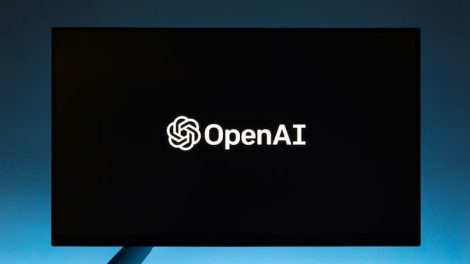Google Launches New AI-Powered Features on Android. This rollout introduces tools designed to improve productivity, personalization, and overall functionality, leveraging advancements in artificial intelligence to create a more intuitive user experience. These enhancements cater to a growing demand for smarter technology integration, providing users with the tools to simplify tasks, enhance creativity, and ensure seamless device operation.

Central to these updates is the integration of generative AI capabilities. Google has positioned these features as a means to redefine user-device interaction, focusing on enabling Android devices to anticipate user needs and perform complex tasks with minimal input. This approach reinforces Google’s commitment to staying ahead in the competitive landscape of smartphone technology while prioritizing the demands of an increasingly AI-dependent user base.
Personalization Through Generative AI
One of the most notable aspects of this update is its emphasis on personalization. The generative AI tools introduced in this rollout allow Android users to customize their devices in unprecedented ways. Features such as dynamic wallpapers, context-sensitive widgets, and tailored app suggestions exemplify Google’s focus on creating a personalized ecosystem for its users.
Dynamic wallpapers, for instance, utilize AI to generate images based on user preferences or environmental conditions, offering a unique aesthetic experience. This feature extends to themes and color palettes that adapt to the time of day or mood inferred from usage patterns. Such advancements underscore the role of AI in enhancing device aesthetics while maintaining functional relevance.
Boosting Productivity with AI-Driven Tools
Another critical element of these updates is the suite of AI-powered productivity tools. From intelligent reminders to automated email drafting, these features are designed to streamline daily operations. One standout tool is the integration of AI within Android’s keyboard and messaging platforms. This addition allows users to compose messages more efficiently, with AI suggesting contextually relevant phrases and correcting errors in real time.
For users in professional settings, these tools extend to document editing and task management. AI-driven suggestions in Google Docs, for instance, help refine content and ensure alignment with user intent. Similarly, the new smart calendar feature predicts scheduling conflicts and proposes optimal meeting times based on user availability and preferences.
Enhanced Accessibility Features
Google has also placed significant emphasis on accessibility in this update, ensuring that the benefits of AI extend to all users, including those with disabilities. Speech-to-text functionality has been refined to offer greater accuracy and support multiple languages. Moreover, the addition of voice-guided navigation and AI-enhanced screen readers empowers visually impaired users to interact with their devices more effectively.
These enhancements highlight Google’s commitment to inclusivity, demonstrating how technology can bridge accessibility gaps and create a more equitable digital environment.
Security and Privacy in AI Integration
With the increasing reliance on AI, concerns about data security and privacy have become paramount. Google addresses these issues through robust measures embedded in its latest features. Users can now control how their data is used to personalize their experience, with transparent settings and options to limit data sharing.
Additionally, AI-driven security features, such as real-time malware detection and phishing alerts, provide an added layer of protection. These advancements align with Google’s ongoing efforts to maintain user trust by ensuring that innovation does not come at the expense of privacy.
Comparison with Competitor Offerings
Google’s AI-powered updates position Android as a strong contender in the race for smarter mobile technology. To illustrate its standing, consider a comparison with similar features offered by competing platforms:
| Feature | Android (Google) | iOS (Apple) | Others (Samsung, Huawei, etc.) |
|---|---|---|---|
| Generative AI Personalization | Dynamic wallpapers, adaptive themes | Limited; static customization options | Moderate; less advanced than Google |
| Productivity Tools | Advanced AI keyboard, smart calendar | Integrated apps; fewer AI capabilities | Varied; often hardware-focused |
| Accessibility Enhancements | AI-powered speech-to-text, screen reader | Basic accessibility tools | Moderate improvements |
| Security and Privacy | Customizable privacy settings, AI alerts | Strong focus on privacy policies | Mixed approach |
The table illustrates how Google’s offerings not only align with industry standards but also set a new benchmark for AI integration.
The Future of AI in Android
Looking ahead, these updates reflect a broader vision for AI’s role in everyday technology. By embedding intelligence into the Android ecosystem, Google aims to create devices that are not just tools but active participants in users’ lives. The potential applications of this vision extend beyond smartphones to smart home systems, wearable devices, and even healthcare technology.
As these features become more widely available, you can expect a gradual shift in how technology integrates into daily routines. From simplifying mundane tasks to facilitating creative expression, AI-powered tools have the potential to redefine what it means to interact with technology.
Google’s launch of AI-powered features on Android represents a significant leap forward in mobile technology. By prioritizing personalization, productivity, and accessibility, these updates address diverse user needs while setting the stage for future advancements. Whether you’re seeking to optimize daily tasks or explore new creative possibilities, these features offer a glimpse into the evolving role of AI in shaping the digital experience.










Add Comment